Can chickens eat pumpkin? Pumpkins are an incredibly versatile ingredient in the kitchen. But did you know that chickens can eat pumpkins too? It’s true! In fact, not only is pumpkin safe for chickens, it’s packed with lots of valuable nutrients, and they love the taste.
Pumpkin is full of vitamins and minerals essential to a healthy chicken diet, including beta carotene, potassium, iron, zinc, and phosphorus. The fiber content in pumpkins helps promote digestive health in chickens as well.
This article will tell you how to feed pumpkins to your chickens safely and why it’s such a great food for them. We’ll also provide tips on how to serve pumpkins to your chickens.
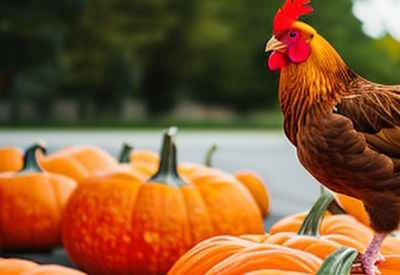
Can chickens eat pumpkin?
The answer is a resounding yes! Pumpkin is a cheap and healthy treat you can safely feed your chickens. Since chickens are scratch-feeders, they will love the added texture of pumpkin in their diet.
The best way to feed your chickens pumpkins is to give them the entire pumpkin cut into wedges or cubes (minus the stem). They can eat every part of the pumpkin including its flesh and rind – though the rind should be given sparingly since it’s hard for them to digest.
It’s important to remember that like any other food item, pumpkin should only be given as a treat or supplement to your chicken’s regular diet. Too much pumpkin can cause diarrhea in chickens, so moderation is key when feeding it to them.
[ChickenAffiliate]
The benefits of eating pumpkin for chickens
Pumpkins are versatile and delicious vegetables that provide your chickens with essential nutrients and health benefits. In addition to its nutritional benefits, pumpkin can provide a tasty treat for your chickens! Let’s look at the five main benefits of feeding pumpkins to your chickens.
Vitamin A
Pumpkins are an excellent source of vitamin A, which plays a key role in helping chickens maintain good vision and overall health. Vitamin A also helps support healthy egg production and aids in feather growth.
Fiber
Pumpkins contain fiber, which helps your chickens’ digestive system work properly and can help them feel fuller after eating less food. This makes pumpkins a great low-calorie snack for chickens who may be overweight or obese.
Antioxidants
Pumpkins are packed with antioxidants like beta carotene, lutein, zeaxanthin, lycopene, and other powerful anti-inflammatory compounds. These antioxidants help protect against diseases such as cancer and heart disease by neutralizing free radicals in the body.
Minerals
Pumpkin is an excellent source of minerals such as potassium, iron, magnesium, phosphorus, zinc, calcium, copper, manganese, selenium, and sodium, which all play an important role in keeping your flock healthy. These minerals help regulate blood pressure levels while promoting chickens’ bone health and immune system function.
Taste & Texture
Last but not least is the taste. Chickens love the taste of pumpkin – it has a sweet flavor they crave! It also provides variety to their diet since it has a unique texture compared to other foods you may give them, such as scratch grains or pellets.
Things to watch out for when feeding pumpkins to chickens
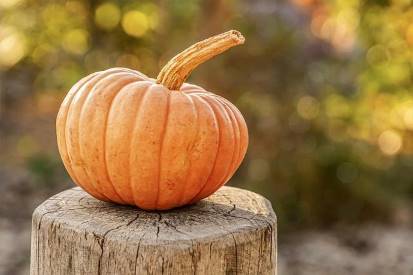
Pumpkins are a healthy and tasty treat for chickens, providing them with lots of necessary nutrients and vitamins. But, like all treats, there are a few things to watch out for when feeding pumpkins to chickens. Here are three important things that chicken owners should remember before giving their feathered friends a taste of the gourd.
When Is the Right Time?
The best time to give your chickens pumpkins is in late summer or early fall – when pumpkins are ripe in the garden. This is when the pumpkins have had plenty of time to ripen, their flavor has sweetened, and they provide the most nutrients.
If you have pumpkins left over after Halloween or Thanksgiving, those can be fed to your chickens. Just make sure they haven’t been sprayed with any chemicals or pesticides.
Don’t Give Too Much at Once
Pumpkin should only be given as an occasional treat – no more than once or twice a week – and even then, it should only make up about 10% of their total diet. This means no more than a cup of diced pumpkin per day for each chicken. Too much pumpkin can lead to digestive issues like diarrhea, so it’s important to feed it in moderation.
Additionally, be sure you’re not giving your chickens too many treats overall; if you do, they may stop eating their regular feed and not get enough nutrition.
Watch Out for Moldy Pumpkins
Pumpkins can start to go bad fairly quickly after they’ve been cut open, so it’s important not to feed moldy pumpkins to your chickens. Inspect all pumpkins carefully before feeding them, looking for signs like brown spots on the rind or slimy patches on the flesh that indicate mold growth.
If you do find mold on a pumpkin, throw it away immediately. It may look harmless, but consuming mold can cause serious health problems in humans and animals.
How often should chickens eat pumpkin?
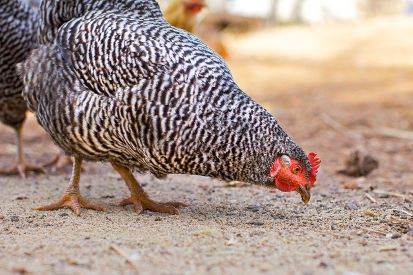
Pumpkins are a great treat that chickens can enjoy now and then, but they should not be a staple in their diets. Feeding your chickens pumpkin more than once or twice a week is not recommended as it could cause digestive problems and nutrient imbalances.
No more than 10% of your flock’s diet should consist of pumpkin. If it exceeds this amount, your chickens won’t get the nutrients they need for growth and health. Therefore, you should only offer them pumpkin as an occasional snack to add variety to their diets.
How to prepare pumpkin for feeding to chickens
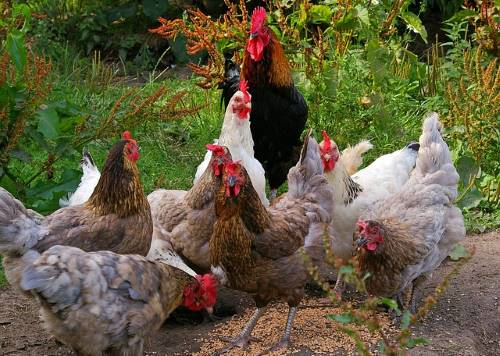
Pumpkins are a great way to give your chickens a nutritious snack. Not only do they provide nutrition, but they also help keep the chickens entertained and happily occupied. But how do you prepare a pumpkin for feeding to chickens? Let’s take a look at the steps necessary to ensure your chickens can enjoy this seasonal treat safely and healthily.
Washing The Pumpkin
The first step is to wash the pumpkin thoroughly with cold water. This will help remove any dirt or grime that could otherwise make your chickens sick or contaminate their food supply.
You can use either a vegetable brush or just your hands – whatever method you choose, ensure you get all the dirt off before proceeding.
Cutting The Pumpkin
Once the pumpkin is clean, you can decide whether to chop it up or feed it whole. If you decide to chop it up, cut it into pieces that are small enough for your chickens to eat easily but large enough so they won’t choke on them.
There’s no need to peel the pumpkin – remove any leaves or stems and discard them in the compost bin. Additionally, there is no need to remove the insides of the pumpkin as chickens love eating these too.
Cleaning Up Afterward
After you have finished feeding your chickens, check around their coop for any uneaten pieces of pumpkin and remove them immediately.
Uneaten food left lying around can attract pests like rats and mice, so you must keep an eye out for anything left over from mealtime and clean it up promptly.
Can baby chickens eat pumpkin?
Many people wonder if baby chickens can eat pumpkins, and the answer is yes. Pumpkin provides many essential nutrients and vitamins to chickens. However, caution should be taken when feeding baby chicks pumpkin. Baby chicks have delicate digestive tracts, so they should not be given much in the way of pumpkins, as this could cause an upset stomach.
It’s best to start with only small amounts at a time to see how well your chicklets can handle it. It’s always important to ensure that you provide the highest quality food for your baby chicks to be happy and healthy.
Can chickens eat pumpkin seeds?
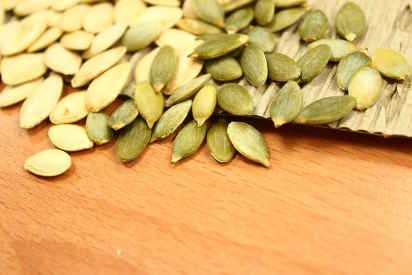
Pumpkin seeds make for an excellent treat for chickens. Not only are they full of various nutrients such as zinc, magnesium, and antioxidants that can help boost the immune system, but they are also easy to grab and eat. Chickens love pumpkin seeds and will peck them right out of your hand.
Keep in mind – while it may be tempting to share the entirety of your Halloween jack-o’-lantern seeds with your chirpy chicks, it is important to limit their intake so that these snacks don’t replace a balanced diet.
Can chickens eat pumpkin skin?
Adding pumpkin skin to a chicken’s diet can be extremely beneficial, as it is full of nutrients and vitamins. It is best to chop up the pumpkin skin into small pieces so the chickens can eat it more easily. Not only will the chickens get all the necessary nutrients from the pumpkin skin, but they will also benefit from the fiber it contains.
In addition, while some people are concerned about giving their chickens treats that contain sugar, this is not something to worry about with pumpkin skins, as they are low in sugar and are safe for chickens to consume.
Can chickens eat canned pumpkin?
Feeding canned pumpkins to chickens can be controversial among backyard chicken keepers. While pumpkin is commonly known as a healthy treat for chickens due to its high fiber content, many argue that canned pumpkin has added preservatives which makes it not an ideal snack for your feathered friends.
To play it safe, some experts advise avoiding giving your flock any canned pumpkin and instead opting for fresh or frozen varieties if you offer this superfood as part of their diet.
Ultimately, if you choose to give your flock a taste of canned pumpkin, research the specific brand beforehand and always monitor your hens’ health after they eat something out of the ordinary.
What other vegetables can chickens eat?
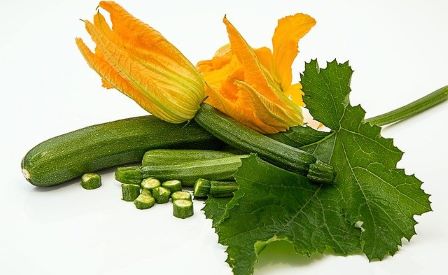
Pumpkins are often the vegetable of choice when feeding chickens, but did you know that plenty of other healthy options are available? Here are some alternative vegetables that your chickens can enjoy.
Potatoes
Potatoes are a great source of essential vitamins and minerals for your chickens. They’re also packed with energy-rich starch and carbohydrates that will boost your birds in the colder months. However, be sure only to feed cooked potatoes to your chickens, as raw potatoes can be toxic.
Read More: Can Chickens Eat Potatoes? The Definitive Answer
Carrots
Carrots are an excellent source of beta-carotene, vitamin A, and fiber for your chickens. They’re also great for adding variety to your birds’ diets. Carrots can be fed raw or cooked – make sure they’re chopped into smaller pieces before serving so your chickens don’t choke on them.
Read More: Can Chickens Eat Carrots? 6 Fantastic Benefits
Squash
Squash is full of vitamins A, C, E, and K, as well as potassium and fiber – all of which will help keep your chickens healthy and happy. It is best served cooked or steamed to make it easier for the birds to digest. Be sure not to overfeed squash; too much can cause digestive issues in some birds.
Read More: Can Chickens Eat Squash? 5 Awesome Benefits
Zucchini
Like squash, zucchini is high in vitamins A and C and important minerals like magnesium and potassium. Again, it is best served cooked so that it is easier for the birds to digest. Zucchini can also be given frozen as a special treat during the hot summer.
Read More: Can Chickens Eat Zucchini? 6 Excellent Benefits
Sweet Potatoes
Sweet potatoes are a great source of energy for your chickens as they are packed with carbohydrates that give them an extra burst of energy during colder weather conditions. Sweet potatoes should always be cooked before being given to your hens; raw sweet potatoes can cause digestive problems in some birds if eaten in large amounts.
Read More: Can Chickens Eat Sweet Potatoes? 5 Important Benefits
Can chickens eat pumpkin – final thoughts
If you’re looking for ways to give your chickens something special that’s good for them, then feeding them some fresh or mashed pumpkins will provide lots of nutritional benefits and make mealtime extra enjoyable.
Remember to keep portions small and follow safety guidelines when feeding your flock new foods. With all this deliciousness available at your fingertips, there’s no reason not to treat your feathered friends with fresh, seasonal pumpkins this fall.
Related Articles:
